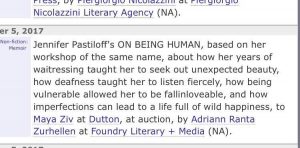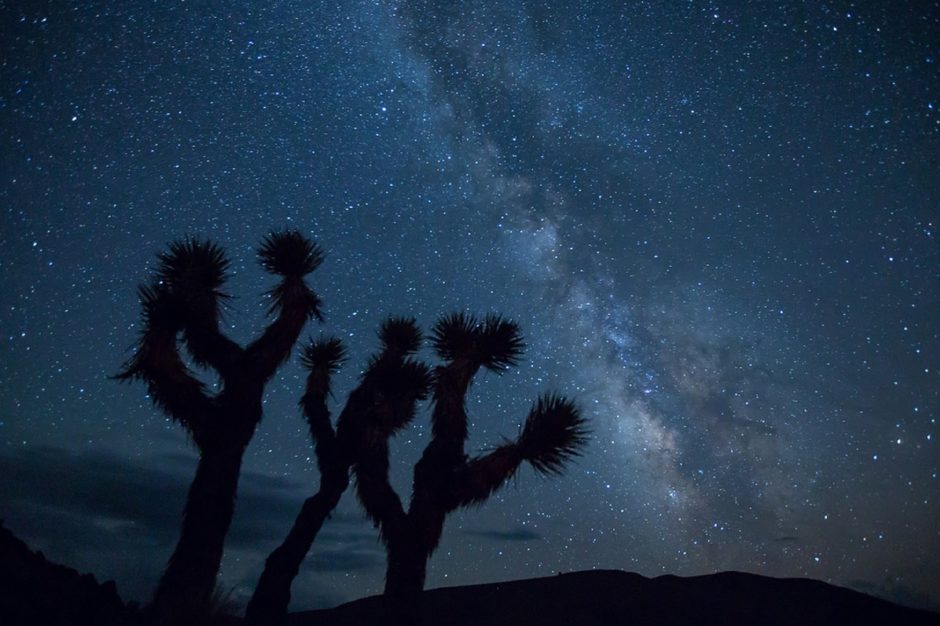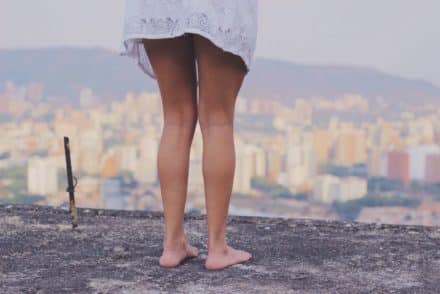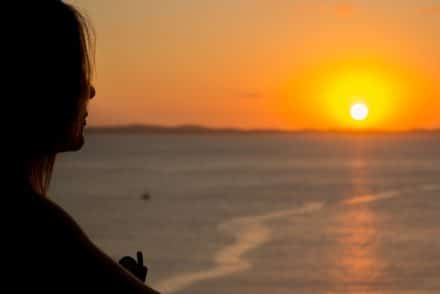By Jen Fitzgerald
Flagstaff, AZ feels like a place where it is safe to be in between. Maybe not between any two things as tangible as a wall and a bear, but in between way points, between jobs, between mountains, or in between a question and the possibility of its answer. The geographic placement of the city mirrors the position of Megrez, the star that marks the end of the Big Dipper’s handle; Tucson, Phoenix, Flagstaff then pouring into the deep bowl of the Hopi Nation and branching out into the entirety of Ursa Major.
Those from Flagstaff don’t stay in Flagstaff for very long without feeling some sort of way about it. The reasons are varied, but all seem to loop back into, “Flagstaff has got a lot of problems but it’s better than where I was.” I could like it there until it became too familiar. I could like it until the novelty wore off and I was the only stationary creature. I could enjoy the train coming through until the first fatality, the first near-miss I witnessed— until it solidified as a place where things happen.
There is much to love about this Dark Sky City, one of our rare 13 in the United States. The come as you may and are vibe is a holdover from the golden days of Route 66 and the Santa Fe Rail Line. Almost everyone there is from somewhere else, and that somewhere else is mostly Phoenix, with Tucson at a close second. This is a city that prizes movement—and I know what it means to move.
It hadn’t even been a year since my relocation to the D.C. area from Staten Island, where my entire family has been for nearly 200 years. There were some family members I was sad to leave behind, and others with whom I was relieved to create distance.
My then-husband, daughter, and I planned to step up into the responsibility of family for one another. But instead of strengthening as a unit of support, we relived this move over and over—geographical trips, individual drifting, and launching away from one another and towards our-selves. Beyond the joy of inertia, there is the relocation of bodies, the period of resettlement, the positioning of the abstract self in connection or opposition to the new surroundings. If a body stays in this state long enough, they don’t really have to belong anywhere. We can always be liminal. We can always be about to happen; always the student; always pure potential. What freedom in that!
But expectation and geography are sometimes at odds. I had a real longing for home. Once I cut the geographic tether, I realized there wasn’t even a house I could conjure up as the solid structure of my previous life. I had moved nearly 15 times. Home was framed around hopes I’d had for the relationships in my life and delusions about the people therein.
While my transition to the to the Mid-Atlantic had not been easy, it was now offering me the geographic distance and emotional space needed to see my former home as it truly stood, not as a swirling and transitional sleight of hand. Most importantly, now that I no longer belonged to Staten Island, there was the chance that I could then belong to any city, any country, any continent— an exciting and disorienting proposition.
I called a taxi after lunch to take me to the airport. There was a twenty-minute wait to get the same taxi that dropped me off at the restaurant, the taxi with my suitcase in its trunk. To ward off my rising anxiety about missing a flight, about flying, and about returning home, I walked the downtown portion of Flagstaff with my camera. I stopped in a café for a chai then continued around town, moving shots into frame: shop windows, train tracks, vintage store fronts, and people—so many people bobbing in and out that it took me a moment to register when a young man had moved himself into my frame. He was blonde and unshaven with piercing blue eyes and the odor of a body that has been in the same place for some time. He entered my space and engaged me wholly.
“Where you coming from?” he said, as though in the middle of a conversation.
“Here and there, I guess. A bunch of places.” I didn’t want to answer directly and also didn’t have a solid answer. I had come from so many places that year that each of them resonated with me as familiar.
“You a traveler?” he asked. The question felt like a compliment.
“Yeah, I think I am.” I smiled, brightly at his vacancy and wondered what traveler meant to him and what it meant to me.
“Where are you coming from, friend?” I offered in reply.
He froze, knowing the word in his mind, seeing the place and struggled out a kuh, kuh, then finally exhaled “California.”
“Where you headed to?” I asked, still smiling. He shrugged his shoulders. “Ever been to Sedona?” He shook his head no. “That may be a good place to figure out your next step.” He continued looking at me, somewhat blankly, maybe sorting out what Sedona meant for him and what it meant for me. I wondered if someone who is traveling-as-occupation, as raison d’etre, believed in a plan or order to things. Their lives could easily be a series of occurrences they continually wake up into. How different was this from my life?
I wanted to stay with this young man, maybe get him something to eat but lifting the veil of stranger between us was an intimacy for which I was not prepared. I couldn’t get a feel for him, couldn’t flesh out who he was and what he needed. Most importantly, I didn’t know what would happen next if I continued talking to him and I always needed to know what happened next. I struggle against sitting in the unknown or in-between, experience has taught me that relinquishing an egress is dangerous.
I put my hand around his right arm and said, ‘It was lovely to meet you and I hope you have a truly wonderful day,” like a Jehovah’s witness trying to make a graceful exit after a house call gone wrong. That was it; I turned and he was gone.
The dimming light of regret quickly settled over me. Shit. He might have needed something, he might have been reaching out to me and I didn’t rise to the occasion of that need. Was it need I was recognizing or disappointment in myself for retreating into the inauthentic? As I headed toward the agreed meeting spot to wait for my taxi, I pulled a five-dollar bill out of my wallet just in case I ran into him again. Something had been left unfinished. Uncertainty had frightened me out of the moment. When meeting the needs of others is the only avenue to meeting your own, you are often filled with dread at the prospect of misunderstanding.
I waited for the taxi at the corner of San Francisco St. and Phoenix St., by the tracks. I’d grown comfortable with the taxis here after only a few nights. They arrived quickly, or maybe Flagstaff is small enough to arrive just about anywhere quickly. The cab drivers call you from their personal phone after being sent out by dispatch. You are immediately on a first name basis.
When Phil dropped me and two friends off at dinner the night before, I simply called his cell phone for our pick-up afterwards. He was there in five minutes. This familiarity allowed me the space to conspire with him—I didn’t want to leave this Dark Sky City without taking in the night sky, and this was my last night.
“Phil, let’s drop these ladies off and then you and me go see some stars.”
Without missing beat, he pulled the drive shaft from Park to Drive and said, “You got it.”
There was no confusion, no wondering after where we might go—he just drove. We were at my friend’s hotel in only a few minutes, then climbing up toward the pitch away from the failing lights of town. I made small talk with him about his family. They were all from Phoenix and he and his sister shared a birthday, exactly seven years apart.
“She always said to me, ‘it was my birthday first Phil, it was my birthday first.’”
This was important to him. It was the second thing he said about his family. I knew I was not the second, third, fourth, or fifth thing mentioned when my brothers were asked about their family. It is difficult to think of my two brothers, 6 and 7 years younger than me because I can’t picture them without immediate regret. The tears come quick and hot—I suppressed them here.
The car climbed higher and higher as the landscape grew darker; doubts about my co-conspirator drifted in—more aptly, doubts about my ability to navigate choices.
“I’d wanted to check out that Lowell Observatory,” I offered, ever more unsure of where we were going.
“Naw, that place is too crowded. Right here is where we want to be.”
He pulled off the road on to a dirt clearing and we got out of the car. I didn’t even have to look up because the sky formed a colander placed on top of the mountain where pin holes of light shone through at every angle and every level.
Phil pulled a small flashlight out from under the steering column, clicked it on with a thumb, and darted the beam across the brush line and around the fields. He was keeping an eye out for elk, who, it turns out, are aggressively territorial. I wasn’t concerned; he was confident and prepared. I’ve learned, in my traveling, there is no better guide through a locale than a young man who grew up in the place and whose father and grandfather did as well. Phil may have been raised a few hours to the south but his lineage to the land was undeniable as a native Arizonan and a Native American.
We scanned the sky and pointed out constellations we knew: Orion, the Little Dipper of Ursa Minor, Cassiopeia, the Big Dipper of Ursa Major…
I pointed at a strip of what appeared to be dense, cosmic dust. “Am I crazy, or can we see a spiral arm there?” “Yep, that’s the Milky Way,” Phil said.
The sight of the dense Milky Way cluster made me feel impossible. The thought, how do I even exist? spun in me.
I had only ever once before seen the Milky Way, I was 30 years old, standing on a strip of common land at my grandparent’s summer place— a permanent campground in Equinunk, PA.
The arm curved across a sky so clear that one might even see cosmic motes floating in between meteorites and planets. I stayed out there, neck crooked, for as long as I could bear it. It was my last summer on that land.
I’d spent a good portion of every summer of my life there, a neutral ground of campfires and talking late into the night. It was one place where I could connect with my brothers outside the emotional separation imposed on us by their mother—the one place where I was not treated like an invasive species. My grandmother, my then-husband, and I tried to keep the place up after my grandfather died, but we didn’t have the money or time. I would do my devastation a disservice by trying to express it here. My brothers had not stepped foot on the property in years.
Phil broke through my remembering,
“I always thought it was cool how we see different stars, how the night sky is always changing.”
This was an introspective dude and I wanted to have a smart answer for him. I said something about the ecliptic and hemispheres but Phil made it clear that he was talking about the wonder of permanence—how these bright, planetary bodies appeared to always be shifting as we as human bodies were a study in the futility of movement. Because it is the earth, the body between us that moves; repositioning and altering the way permanence views impermanence.
I thanked Phil as we got back into the car. For the rest of the drive back to my hotel we made jokes about Adult Swim cartoons. He was surprised that I knew so much about those shows. I didn’t tell him I have brothers his age. I am frightened by the fact that I mention them less and less, hurt when I discover that their friends don’t even know I exist.
But every chance I get, I connect with a young man who reminds me of them in some way—offer kinship to someone who might take it.
When we pulled up to my hotel I tipped Phil well and said “Never forget how lucky you are to have those stars. Look up at them and every single chance you get.” I said this more for myself than for him. I said it as proof that I had learned something about regret.
**
The sun was reaching its height as the taxi pulled up to the curb and I got in. I clutched the five-dollar bill in my hand and scanned the main streets and side streets for the traveler as we drove past. I hoped that if I saw him again, the thing I had missed, the quick heaviness after we parted, would have meaning. Maybe missed opportunities are just moments on hold, moments waiting for the people involved to be smart enough or brave enough to do what is uncomfortable and necessary. Maybe there is always a parallel version of us who knew exactly the right thing to do and did it, not caring about the outcome.
These versions of ourselves, like our timelines, exist concurrently—overlapping, and intertwining. What haunts us may have passed or may not have even happened yet. My frustration in the taxi was tenfold because this lesson was nowhere near complete. This same version of me will sit in a parking lot, back on Staten Island, two years later. I will barely be able to afford groceries, still gripping that symbolic five-dollar bill, feeling the arid manifestations of lack.
I will be sitting in my car, outside the grocery store where family shopped all my life, rain coming down. I will see my youngest brother and not recognize him at first. He will look so unwell, so pale, heart-strained. I will remember gripping the $5 bill in Flagstaff, ready to chase down a complete stranger who may or may not have been in need. But it isn’t him I am chasing after, it is her—this version of me who is so gutted by life, so paralyzed by failure and inability, that she can no longer recognize the wisdom of the liminal space; not believing there exists a version of herself brave enough to do the right thing, regardless of the outcome; not believing the same spiral arm of our galaxy lay up there, shrouded in daylight, hooking us yet. When we accept impermanence, we accept regret.
I flew home that day, through invisible forms, repositioning myself within the charted confines of experience. I flew home because we lack sufficient language for all the places we come to rest our bodies. If I return to a single place often enough, it starts to feel like home. Going back saves me from materializing in a new place.
Tactile forms of nostalgia, home, or love bend and shift. They get torn down and rebuilt in new shades and textures. They show up in different places, looking like complete strangers. carrying around some terrible, perfect version of how the world should be.
Permanence and impermanence exist in tandem, interchangeably in rotation—in comparison to, in contrast to, one another. To believe one can exist without the other is an out-of-balance singularity; a mapping of the illusion.
Stars appear to drift, as the traveler appears to drift but we are proof that these movements are just a repositioning of light within the same constellation. Stars and humans move within the confines of an invisible and finite space—formless, but with shape. We prove this by coming together in not-so-random clusters to spend blissful moments contemplating the dark sky and planetary bodies; contemplating the wonder that is us. This ancient union makes kin of us all.
This space, this now-bleak, now-black space between us
is all there is.
Go back, go back, go back. Plant your feet into the earth,
into the Earth. One step at a time is how we have to go.
Out of the dome, the doors are opened. You might say they have been
flung open without ceremony. But stop. Bear. Be dazzled by the daylight.
Chrissy Williams
From: The Invisible Bear
Jen Fitzgerald is a poet, essayist, photographer, and a native New Yorker who received her MFA in Poetry at Lesley University and her BA in Writing at The College of Staten Island (CUNY). For 2018, Jen is the Managing Editor for the Los Angeles-based small press, Agape Editions. She is a member of New York Writers Workshop and teaches creative writing workshops online and around New York City. Her first collection of poetry, “The Art of Work” was published by Noemi Press in September of 2016. Her essays, poetry, and photography have appeared in such outlets as PBS Newshour, Boston Review, Tin House, Salon, PEN Anthology, Colorado Review, Harriet: The Poetry Foundation Blog, Best American Poetry Blog, among others. She is living in and restoring a 200-year-old hotel/boarding house on Staten Island as she completes new collections.

Donate to the Aleksander Fund today. Click the photo read about Julia, who lost her baby, and what the fund is.

Join Jen at her On Being Human workshop in upcoming cities such as NYC, Ojai, Tampa, Ft Worth and more by clicking here.





1 Comment
I feel like my catching this post has been serendipitous. I lived in Flagstaff for a short time when I was 20, and although I’m 42 now, a piece of my heart has forever remained there {and in the Southwest}. I have been back a few times, to AZ and NM, but that was 16-17 years ago. I still miss it so. In three weeks, my Mom, sister, daughter and I will be travelling to Utah to visit my brother who is stationed in the Air Force, and after that, my daughter and I are going on to visit my father in Tucson. While I won’t make it to Flagstaff this time, I can’t wait to revisit one of my favorite corners of the world. Your post has increased that feeling of anticipation. ♥